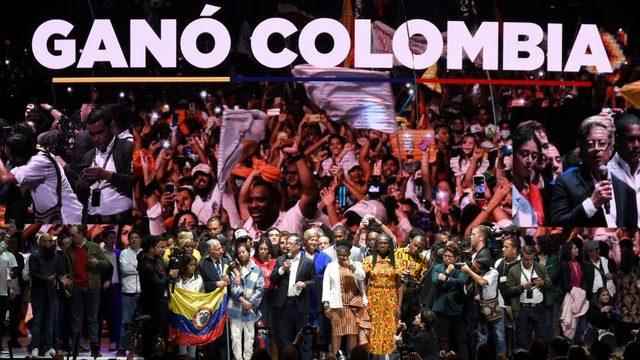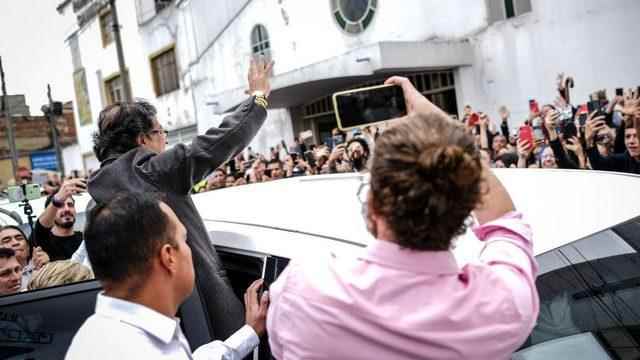Gustavo Petro, a former member of the guerrilla movement, won the second round of the presidential election in Colombia.
Petro, who will form the country’s first left-wing government, said the election was a day of joy for the Colombian people and promised to bring real change to his country.
Defeating his right-wing populist rival, Rodolof Hernandez, Petro managed to get 50.5 percent of the votes in the election.
Addressing his supporters in the capital Bogota, Petro stated that his victory marked the beginning of a new era in the country’s history, in which sectarianism and intolerance were removed, and said, “Today is the day of the streets and squares.”
Francia Marquez, Petro’s vice president and a former cleaner, will be the first black woman in the country to hold the post.
US Secretary of State Antony Blinken also congratulated Petro on his victory, saying that the Biden administration looks forward to strengthening relations with Colombia.
Hernandez, on the other hand, acknowledged Petro’s victory in a video he shared on social media after the election.
Defeated by more than 700 thousand votes, Hernandez said, “The vast majority of Colombian people chose the other candidate. As I said before the election, I accept the election results.”
Gustavo Petro, the 62-year-old former mayor of Bagota, stood before the electorate as a promising leader in the face of poverty, violence, urban crime rates and corruption.
Colombia is a country traditionally ruled by right-wing politicians.
40 percent of the country with a population of 50 million lives below the poverty line. According to the World Bank, Colombia is among the countries with the highest levels of inequality.
Petro, who voted in the first round in Bogota, said: “There are two options: One is to leave things as they are in Colombia, which for me means more corruption, more violence and hunger. The other option is to change Colombia, to prosperity and democracy. to rehabilitate,” he said.
His political opponents fear that Petro, a former Marxist guerrilla member, will strengthen ties with Venezuela and other leftist governments in the region.
CONGRATULATIONS FROM SOUTH AMERICA
In the last elections, left-wing candidates took over power in Argentina, Peru, Chile, Mexico, Bolivia and Honduras.
Peter’s victory was greeted with joy in these countries as well.
“Your victory, affirming democracy, guarantees the path to a united Latin America at a time when we demand maximum solidarity among our brotherly peoples,” Argentina’s President Alberto Fernandez said on Twitter.
Chilean President Gabriel Boric, elected earlier this year, described Petro’s victory as “a joy for Latin America”.

“We will work together for the unity of our continent in the challenges of a rapidly changing world,” Boric wrote in a post on his social media account.
In Peru, President Pedro Castillo said he was looking forward to working with his ally and said, “We are united by a common feeling for our peoples, aimed at collective, social and regional integration.”
Bolivian President Luis Arce commented that “Latin American integration is getting stronger”.
Mexican President Andres Manuel Lopez Obrador, referring to the assassination of left-wing presidential candidate Jorge Eliecer Gaitan in the 1948 elections in Colombia, said that Petro’s success could heal wounds in a country where political assassinations are not uncommon:
“Victory may be the end of this curse and the awakening of fraternal and honorable people.”
Venezuelan President Nicolas Maduro, who had a strained relationship with pre-election Colombian President Ivan Duque, was also elated.
Maduro said, “The will of the Colombian people has been heard. The will of the people set out to defend the path of democracy and peace.”
Cuban President Miguel Diaz-Canel, which is subject to international sanctions like Venezuela, spoke of the hope of “developing bilateral relations for the welfare of the two peoples”.
